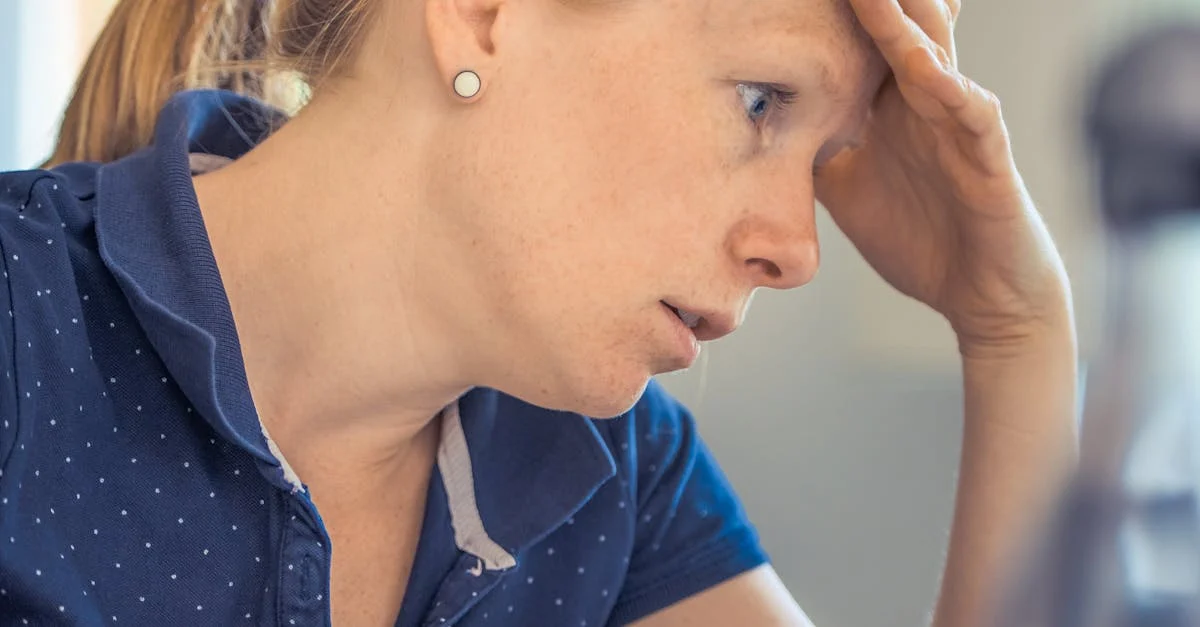In today’s fast-paced world, many individuals find themselves grappling with feelings of stress and anxiety. Finding effective methods for treatment has never been more crucial. Fortunately, innovative approaches are emerging that prioritize a deeper understanding of these emotions. Emphasizing personal connection and practical techniques, new therapies aim to provide significant relief. This blog explores various options for Stress & Anxiety treatment, spotlighting strategies that connect with our human experience. By embracing these transformative practices, we can cultivate a healthier mindset and improve our overall well-being.
Main Points
- Understanding the root causes of stress and anxiety.
- Exploring innovative Stress & Anxiety treatment options.
- Implementing effective Stress & Anxiety coping strategies.

Understanding the Root Causes of Stress and Anxiety: A Comprehensive Analysis
To effectively address Stress & Anxiety, it’s crucial to understand what triggers these feelings. Often, they stem from a variety of sources. For instance, workload, financial pressures, or personal relationships can significantly contribute to stress levels. Additionally, underlying mental health conditions might exacerbate anxiety symptoms.
Key Contributing Factors
- Environmental Factors: Unstable living conditions or a chaotic work environment can heighten stress.
- Physical Health: Chronic illnesses can increase vulnerability to anxiety.
- Life Changes: Major events, whether positive or negative, can lead to feelings of unease.
Understanding these root causes can enhance your approach to Managing Stress & Anxiety. By identifying specific triggers, you can start employing effective Stress & Anxiety coping strategies.
The Role of Mindfulness and Meditation in Stress Management Strategies
Mindfulness and meditation are powerful tools in effective Stress & Anxiety management. They encourage individuals to focus on the present moment, promoting a sense of calm amidst chaos. When practiced regularly, mindfulness can help reduce feelings of overwhelm while enhancing emotional resilience. Meditation has been shown to lower physiological stress responses, creating a buffer against life’s demands. Together, these practices foster not just relaxation, but a more profound understanding of one’s thoughts and emotions, which can lead to healthier coping mechanisms for Stress & Anxiety.
Revolutionary Therapies: How Technology is Shaping Anxiety Treatment
The world of anxiety treatment is witnessing a remarkable transformation, driven by technology. Innovative approaches, such as virtual reality and cognitive-behavioral therapy apps, are becoming mainstream. These Stress & Anxiety solutions enable individuals to confront their fears in a controlled environment, fostering resilience. Additionally, artificial intelligence plays a pivotal role, offering personalized support through chatbots and tailored resources. However, the rapid pace of change can also be overwhelming. Navigating these options requires careful consideration to find what truly resonates with each person’s unique journey.
Nutritional Psychiatry: The Impact of Diet on Mental Health and Well-Being
Nutritional psychiatry investigates how our diet shapes our mental health and overall well-being. It highlights the connection between the foods we consume and our emotional states. This area emphasizes that a balanced diet rich in nutrients can significantly influence brain function and mood regulation. For instance, Omega-3 fatty acids and antioxidants have been shown to combat stress & anxiety. However, understanding the psychological effects of different foods can be perplexing, as individual reactions vary widely.
Key Nutritional Elements
- Omega-3 Fatty Acids: Found in fish and flaxseeds, they help reduce stress & anxiety.
- Antioxidants: Present in fruits and vegetables, they combat oxidative stress, enhancing brain health.
- B Vitamins: Essential for neurotransmitter function, they improve mood and cognitive performance.
Given these insights, it’s crucial to reflect on our dietary choices, as they can affect our life quality. Small changes might lead to impactful outcomes, making nutrition a powerful ally in fostering mental health.
Cognitive Behavioral Techniques: Empowering Change in Stress Perception
Cognitive Behavioral Techniques (CBT) serve as a bridge to transform our perception of stress and anxiety. These methods encourage individuals to identify and challenge negative thought patterns. By doing so, they not only alleviate the burden of stress but also promote a healthier mindset. For instance, incorporating mindfulness practices can significantly enhance emotional resilience. However, it’s essential to remember that changes may not happen overnight; patience and consistency are key components in this process of personal growth.
Integrative Approaches: Combining Traditional and Alternative Treatments for Optimal Results
Integrative approaches to health care uniquely blend traditional and alternative treatments, fostering a holistic perspective. This method not only addresses symptoms but also considers the individual’s overall well-being. For instance, incorporating mindfulness techniques with conventional therapies can significantly mitigate Stress and Anxiety. Consequently, patients often report improved outcomes. Furthermore, such combinations can bridge the gap between various practices, offering a more tailored approach. As the world of healing evolves, this synergy may unlock new pathways for optimal results.
“Integrative medicine emphasizes the connection between mind and body for greater health outcomes.”
Designing a Personalized Stress Management Plan: Steps to Lasting Relief
Creating an effective stress management plan can be transformative. Here are some steps you might consider integrating into your routine:
- Identify Triggers: Understand what causes your Stress & Anxiety, whether it’s work, relationships, or other factors.
- Set Boundaries: Learn to say no and prioritize your time. This can help minimize overwhelm.
- Practice Mindfulness: Engage in activities like meditation or yoga, which can ground you and enhance your focus.
It’s essential to continually assess your plan to ensure it’s effective. Sometimes, recalibrating your strategies will lead to a more profound sense of relief. Remember, managing Stress & Anxiety is a journey, not a destination.
Conclusion
In summary, understanding our struggles with stress and anxiety can lead to more effective treatment options. It’s important to acknowledge that many people share these experiences, creating a sense of unity in our challenges. Moreover, seeking help is a sign of strength, not weakness. We all deserve a chance to thrive, free from overwhelming stress and anxiety. Therefore, working on coping strategies and considering professional treatment can significantly improve our well-being. Ultimately, prioritizing mental health should be seen as a vital journey toward a more fulfilling life.
Frequently Asked Questions
What are some common symptoms of stress and anxiety?
Common symptoms include restlessness, fatigue, difficulty concentrating, irritability, muscle tension, and sleep disturbances.
How can I manage my stress and anxiety on a daily basis?
Daily management can include practicing relaxation techniques, maintaining a healthy lifestyle with regular exercise, eating a balanced diet, and ensuring you have a strong support system.
When should I seek professional help for stress and anxiety?
You should consider seeking professional help if your symptoms persist, worsen, or interfere with your daily life and relationships.
What are some effective treatments for stress and anxiety?
Effective treatments can include therapy (such as cognitive-behavioral therapy), medication, mindfulness practices, and lifestyle changes like regular exercise and proper sleep.
Can stress and anxiety be managed without medication?
Yes, many individuals effectively manage stress and anxiety through therapy, lifestyle adjustments, and natural remedies without the use of medication.



